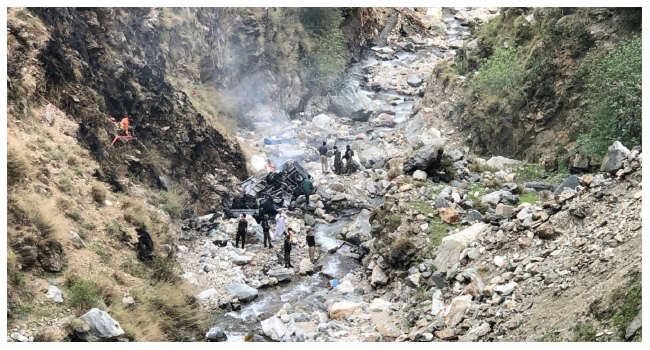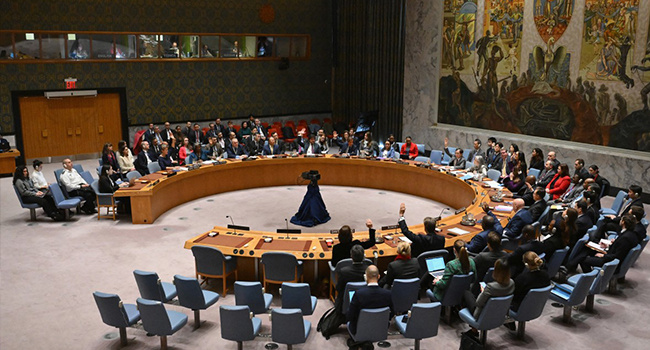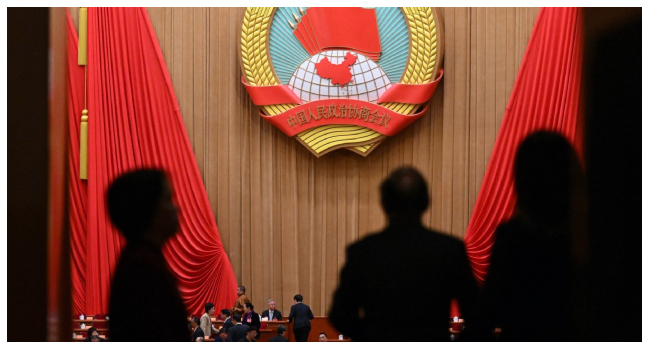
Hector RETAMAL / AFP
Singapore and Mongolia slapped sweeping bans on arrivals from China on Friday and the United States told its citizens to avoid the country after a global health emergency was declared over a viral epidemic that has killed 213 people.
Nearly 10,000 people have been infected in China by the new coronavirus and new cases were found abroad, with more than 20 countries now affected by the disease.
With countries around the world growing increasingly concerned, the World Health Organization, which was criticised for initially downplaying the virus threat, declared the outbreak a global health emergency on Thursday.
The US State Department raised its warning alert to the highest level, telling Americans “do not travel” to China and urged those already there to leave.
Singapore and Mongolia went a step further.
Citing a likely “sharper rise” in the spread of the virus, Singapore’s government barred arrivals and transit passengers from mainland China.
Mongolia’s measure applies a ban to Chinese nationals and foreigners coming from the neighbouring country by plane, train or road from Saturday until March 2. Mongolians will be barred from going to China over the same period.
The vast, landlocked country had previously only banned cars from crossing the border.
Japan, meanwhile, joined Britain, Germany and other countries that have recommended that their citizens avoid China.
– Taking action –
WHO chief Tedros Adhanom Ghebreyesus said the greatest concern was the potential for the virus “to spread to countries with weaker health systems”.
“We must all act together now to limit the further spread,” Tedros said.
The WHO has declared a global health emergency five times since the practice began in 2007 — for swine flu, polio, Zika and twice for Ebola.
It allows the UN health body to issue recommendations that the international community is expected to follow.
Tedros said travel and trade restrictions involving China were unnecessary.
But authorities, businesses and worried people around the world were taking matters into their own hands.
Many major airlines this week suspended or reduced flights to China.
Russia sealed its remote far-eastern frontier.
Impoverished Papua New Guinea went so far as to bar all visitors from “Asian ports”.
Some countries banned entry for travellers from Wuhan, the city in central Hubei province where the virus first surfaced.
Italy and Israel on Thursday barred all flight connections with China.
The Italian government declared a state of emergency on Friday to fast-track efforts to prevent the spread of the virus.
– Growing panic –

Anthony WALLACE / AFP
China on Friday said it sent charter planes to Thailand and Malaysia to bring Hubei residents back to Wuhan, citing the “practical difficulties” that they have encountered overseas.
In a sign of growing global anxiety, more than 6,000 tourists were temporarily confined aboard their cruise ship at an Italian port after two Chinese passengers fell ill.
They later tested negative for the coronavirus.
More than 40,000 workers at a vast Chinese-controlled industrial complex in Indonesia’s Sulawesi island have been quarantined over fears about the virus.
The US reported its first case of person-to-person transmission of the virus on American soil — a man in Chicago who got it from his wife, who had travelled to Wuhan.
Britain reported its first two cases.
– Death toll grows –

China has taken extreme steps to stop the spread of the virus, including effectively quarantining more than 50 million people in Wuhan and surrounding Hubei province.
It has also suspended school nationwide and extended the Lunar New Year holiday in an effort to limit people travelling.
But the toll continues to swell, rising to 213 after 43 new deaths were reported on Friday. All the dead have been in China.
China’s National Health Commission also confirmed 1,982 new cases, bringing the total to 9,692.
That exceeds the 8,096 cases from SARS (Severe Acute Respiratory Syndrome) a similar pathogen that spread to more than two dozen countries in 2002-03, and killed 774 people, mostly in China and Hong Kong.
Another 102,000 people are under medical observation in China with possible coronavirus symptoms.
The new virus is believed to have emerged in a Wuhan market that sold wild game, and spread by a Lunar New Year holiday season in which hundreds of millions of Chinese travel domestically or abroad.
– Airlifts continue –

Countries have scrambled to evacuate their nationals from Wuhan, with US and Japanese citizens leaving first on Wednesday.
France on Friday airlifted around 200 of its citizens from the city. They will be placed under two-week quarantine back home.
Britain followed suit within hours, extracting 110 British and foreign nationals.
“It’s sad to leave a country which you’re attached to,” Adrien, a 26-year-old French auto industry employee, told AFP before the flight. “We’re also relieved because we don’t know how things will turn out in China.”
Three people aboard Japan’s first evacuation flight tested positive after landing back home, two of whom showed no symptoms, underscoring the difficulty detecting the coronavirus.
South Korea said 18 of around 350 people who were repatriated from Wuhan were hospitalised after showing symptoms.
AFP





